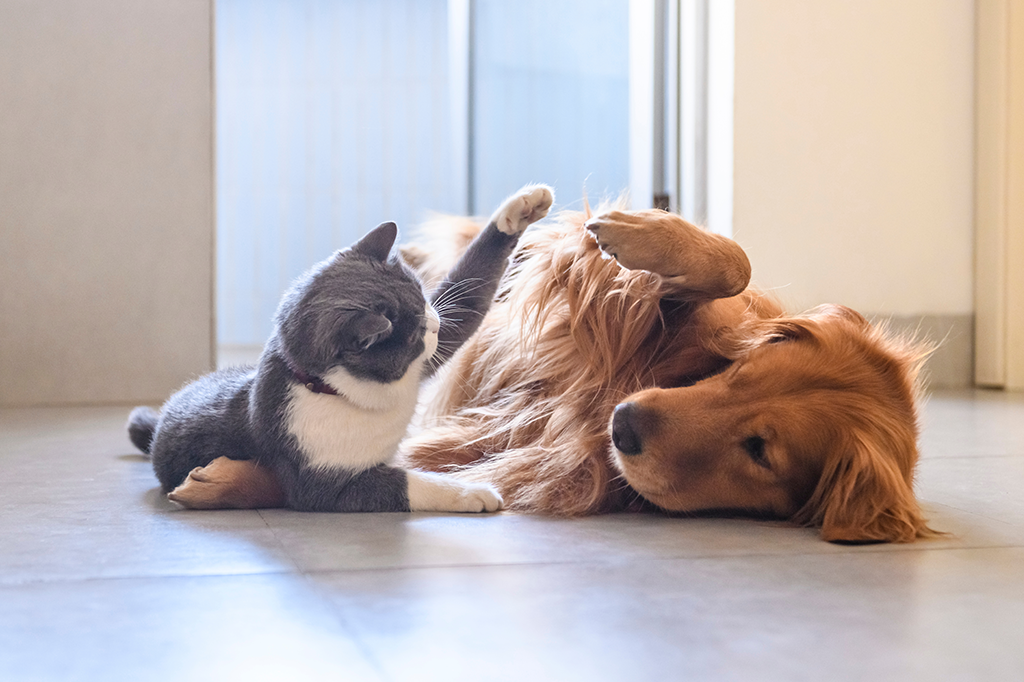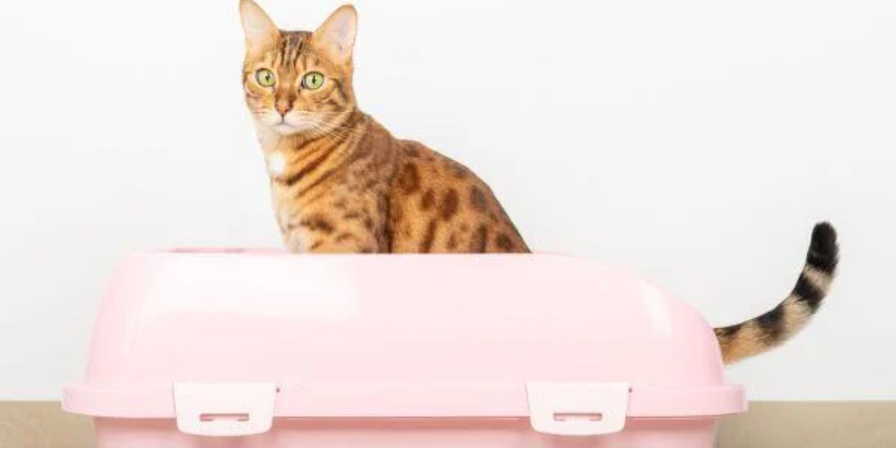Toxin-Free Living for Indoor Cats and Dogs: The Complete Guide

If you’re like me, your pets are part of your family. When my cat began experiencing digestive and other health issues, it caused me a lot of anxiety. I immediately questioned what could be causing it and reassessed the care and food I provided. Have you ever considered that the food we give our pets or their environment could be harmful? Caring for our beloved pets, whether cats or dogs, involves providing a safe, toxin-free environment. By making small changes in products and surroundings, we can significantly improve their health and well-being.
This guide will help you learn all about toxin-free living for cats and dogs, from choosing safe pet food brands to finding non-toxic litter and other essential tips for keeping your pets healthy.
Introduction to Toxin-Free Living for Pets
When i started to explore deeper i came to realization that just as we prioritize our own health by avoiding harmful chemicals, pets deserve the same care. Exposure to toxins can lead to a wide range of health issues for animals, including allergies, skin irritations, digestive problems, and even long-term effects like organ damage or cancer.
Common Toxins in Pet Food
Pet food may look harmless, but many brands contain harmful additives, preservatives, and chemicals. Some of the most common toxins found in pet food include:
- Artificial preservatives like BHA and BHT, which have been linked to cancer.
- Artificial colors and flavors, which are unnecessary and can cause allergic reactions.
- Meat by-products, which often contain lower-quality ingredients that may harbor bacteria or toxins.
- Commercial dry food, the dog’s and cat`s internal systems have to rehydrate the dry food in order to break it down and utilize it. This means that the moisture must be taken from somewhere in the body, leaving your pet at risk of dehydration. Commercial dry food is particularly risky for dogs and cats suffering from kidney disease.
Safe Pet Food Brands for Cats and Dogs
Not all pet food is created equal. Here are some toxin-free pet food brands known for their commitment to clean, high-quality ingredients:
- The Honest Kitchen: This brand uses human-grade ingredients with no fillers or artificial preservatives.
- Acana: Known for its high protein and fresh regional ingredients.
- Blue Buffalo: Free from artificial preservatives, colors, and flavors.
- Orijen: Focuses on fresh, whole prey ingredients that are responsibly sourced.
Harmful Ingredients to Avoid in Pet Food
When choosing food for your pet, steer clear of these harmful ingredients:
- Propylene Glycol: Found in many wet pet foods, it is a synthetic additive that can cause health problems.
- Ethoxyquin: A preservative used in some pet foods, linked to liver and kidney damage.
- Corn and Soy: These are often used as cheap fillers in pet food but offer little nutritional value and can lead to allergies.
Health dangers lurking in cats litter boxes?

Cat litter is an often-overlooked source of toxins. Many traditional litters contain harmful chemicals like sodium bentonite or synthetic fragrances, which can cause respiratory issues in cats.
Dangerous types of cat litter on the market include some types of clumping cat litter, those containing sodium bentonite clay and those containing crystalline silica dust.
Clumping Litter
- Clumping litters are linked to a wide range of cat health problems including diarrhea, vomiting, kidney and respiratory problems, lethargy, etc.
- Clumping litter forms a hard, insoluble mass when it gets wet. It also produces a fine dust. When cats use the litter box, they lick themselves clean and ingest the dust. The ingested dust expands, forms a mass, and coats their internal organs, causing dehydration and preventing nutrient absorption.
Litter Containing Sodium Bentonite
- Sodium bentonite is a naturally swelling clay added as a clumping agent to litter.
- When wet, sodium bentonite swells to approximately 15 times its original volume, acting as expandable cement.
- When expanded, this clay will block the plumbing pipes in your home and should never be flushed.
- If this clay can block plumbing pipes, imagine what ingesting the dust does to your cat’s lungs and intestines.
Litter Containing Crystalline Silica Dust
- Some low-quality clay litters contain crystalline silica dust.
- Crystalline silica is not biodegradable and is said to be a cancer-causing agent.
- Over time, crystalline silica can accumulate in your cat’s lungs, resulting in a condition called silicosis, which causes shortness of breath and reduced lung capacity.
- Humans are also susceptible to silicosis.
Non toxic safe cat litter options
Here are some of the best non-toxic cat litter brands that prioritize safety and eco-friendliness:
- Dr. Elsey’s Precious Cat – Known for its natural ingredients and low dust.
- Ökocat – Made from sustainably sourced wood fibers, biodegradable, and chemical-free.
- SmartCat All Natural Clumping Litter – Grass-based, biodegradable, and free from harmful chemicals.
- World’s Best Cat Litter – Corn-based, flushable, and non-toxic.
- Naturally Fresh Cat Litter – Made from walnut shells, offering great odor control and non-toxic composition.
These brands offer safe alternatives to traditional chemical-laden litters.
Non-Toxic Grooming Products for Pets
Grooming is an essential part of pet care, but conventional shampoos and grooming products often contain harsh chemicals that can irritate your pet’s skin. When selecting grooming products, look for:
- Shampoos free of sulfates and parabens: These harsh chemicals can strip natural oils and cause dryness or irritation.
- Natural flea repellents: Opt for products with essential oils like cedarwood or neem, which are effective but gentle on your pet’s skin.

Here are some of the best non-toxic shampoos for cats and dogs that are gentle and free from harmful chemicals:
- Earthbath All Natural Pet Shampoo – Free from parabens, sulfates, and dyes, suitable for sensitive skin.
- 4-Legger Organic Dog Shampoo – USDA certified organic, made with essential oils and natural ingredients.
- Burt’s Bees for Cats & Dogs – Made from natural ingredients like honey and beeswax, free of sulfates and harsh chemicals.
- Pro Pet Works Natural Oatmeal Pet Shampoo – Hypoallergenic and free from parabens, sulfates, and alcohol.
How to Create a Toxin-Free Environment at Home
A toxin-free lifestyle for your pets isn’t just about what they eat or the products used on them. It’s also about the environment they live in. Here’s how to create a toxin-free space for your furry friends:
- Use natural cleaning products: Many household cleaners contain chemicals that are harmful to pets. Opt for natural, pet-safe alternatives like vinegar and baking soda.
- Avoid pesticides and herbicides in the yard: Pets can absorb these toxins through their paws or when grooming themselves.
- Use HEPA air filters: These help remove dust, allergens, and toxins from the air, keeping your pet’s environment clean.
Common Household Products to Avoid Around Pets
Pets can be sensitive to common household items. Some items to keep out of reach include:
- Essential oils: While great for humans, some essential oils (like tea tree or eucalyptus) can be toxic to pets.
- Candles with synthetic fragrances: Opt for beeswax or soy candles with natural essential oils.
- Cleaning products with bleach or ammonia: These can be harmful if inhaled or ingested by pets.
- Air fresheners. Many air fresheners contain chemicals like phthalates, formaldehyde, and volatile organic compounds (VOCs) that can irritate pets’ respiratory systems and lead to issues such as coughing, sneezing, or even more serious conditions like asthma. Additionally, essential oils used in some air fresheners can be toxic to cats and dogs. It’s best to avoid synthetic air fresheners and opt for natural alternatives to keep your home fresh and safe for pets.
Natural Cleaning Products Safe for Pets
Using safe, non-toxic cleaning products is crucial for your pet’s health. Here are some effective, pet-safe alternatives:
- White vinegar and water: A simple solution for cleaning floors and surfaces.
- Baking soda: Great for absorbing odors and cleaning up spills.
- Castile soap: A versatile, plant-based cleaner safe for both pets and humans.
Toxin-Free Toys and Accessories for Pets
Just like food and litter, pet toys and accessories can also contain toxins like BPA, phthalates, and lead. Choose toys made from natural materials like cotton, wool, or rubber. Brands like West Paw and Planet Dog make eco-friendly, toxin-free toys that are safe for your pets to chew and play with.
Plants that pet owners should avoid
There are several plants that are toxic to cats and dogs, and should be avoided in homes with pets. Some common ones include:
- Lilies – Extremely toxic to cats, even small amounts can cause kidney failure.
- Sago Palm – Highly poisonous to both cats and dogs, it can cause liver damage and death.
- Aloe Vera – While beneficial for humans, it can cause vomiting and diarrhea in pets.
- Tulips – The bulbs are particularly toxic and can cause stomach upset and nervous system issues.
- Philodendron – Causes oral irritation, drooling, and vomiting.
It’s best to research any plant before bringing it into a pet-friendly home.
Summary: The Benefits of Toxin-Free Living for Your Pets
Switching to a toxin-free lifestyle for your pets doesn’t just reduce their exposure to harmful chemicals; it also improves their overall health. Pets on toxin-free diets often experience better digestive health, a shinier coat, and fewer allergies.
Frequently Asked Questions (FAQs)
1. What are the benefits of switching to non-toxic pet care products?
Non-toxic products reduce exposure to harmful chemicals, leading to healthier skin, fewer allergies, and overall better health for your pets.2. Are essential oils safe for pets?
Some essential oils, like lavender, can be safe in small amounts, but many, like tea tree oil, are toxic. Always consult a vet before using them.3. Can I make my own non-toxic pet care products?
Yes, DIY pet care products, like shampoos using natural ingredients such as oatmeal or coconut oil, are safe and effective.4. What common household items are dangerous to pets?
Air fresheners, certain cleaning products, and human medications are all harmful to pets and should be kept out of reach.
5. What types of litter are safe for cats?
Look for non-toxic, natural litters made from materials like wood, paper, or corn, which are free from harmful chemicals and safe for cats.

